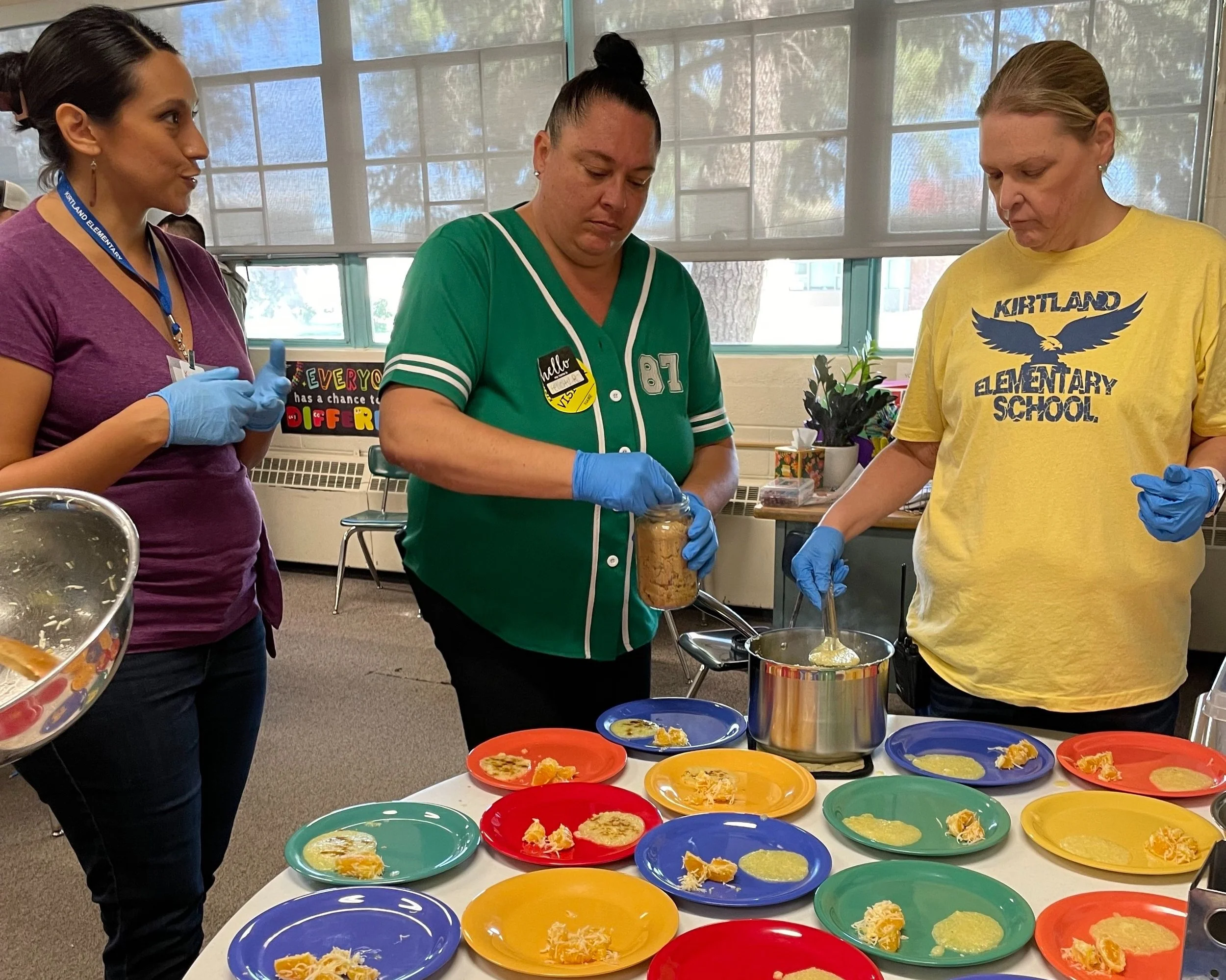Volunteer
Opportunities
At Kids Cook! we know that our work happens best when it happens in community. We rely on a network of parent and community volunteers to help facilitate cooking in our classrooms, organize and manage food and cooking supplies and help out in many other ways!
How to Volunteer:
Parents/Caregivers
Talk to your child’s teacher for information on volunteer requirements and scheduling.
Classes happen during the school day and last 2 hours.
You can expect to lead a group of students in preparing a recipe, helping with food service and cleanup.
Community Members
Contact Sara Robbins for information on volunteer requirements and scheduling.
You can observe a class (if needed) to get a better idea of what its like to be a volunteer.
Classes happen during the school day and last 2 hours. There are generally morning and afternoon classes on Tuesdays, Wednesdays, Thursdays, and Fridays.
You can expect to lead a group of students in preparing a recipe, helping with food service and cleanup.
“Since coming to Kids Cook! my daughter has sparked a higher interest in cooking and trying new foods, this is a super awesome class.”
-
At Kids Cook! the volunteers are active participants in the class! You may be asked to serve in a variety of ways that are most helpful to the educator and the students. Some of the standard tasks include
- reading recipes with students
- helping students get ingredients or tools for cooking
- supervising handwashing and dishwashing
- sanitizing tables and desks
- helping serve food
- participating in table conversations while everyone eats! -
Kids Cook! can use volunteers of all cooking abilities to help in the classroom! The educator will give you a copy of the recipe at the beginning of the class and check in with you throughout the class to answer any questions you may have or offer assistance. If you aren’t confident cooking on your own, there are still ways you can help in the classroom to assist the educator before, during, and after a class.
-
We take a different approach to food than what you may be used to or experienced growing up. Our food philosophy is based on Division of Responsibility, a phrase coined by therapist and food specialist Ellyn Satter.
We aim to empower students by putting the decision to eat, and how much, in their hands. It is always their choice to eat the food, and if they choose not to eat, we do not pressure them or make them feel bad for their choices. We always serve every student food (unless there is a foo allergy issue) but we trust and encourage students to develop independent regulation.
Based on current research data, this diplomatic or boundary-based feeding style is one of the most effective ways to prevent childhood obesity. It also gives students the opportunity to build security with food and know how much they need to eat.
We eat based on our motto, “Eat food, real food, with variety and moderation.” We encourage food neutrality over labeling foods as “good” or “bad”. We promote eating based on the current MyPlate guidelines. We also use and believe in the phrase “Don’t Yuck My Yum!” which gives students permission to communicate their food preferences in a respectful, considerate way.
-
In the Kids Cook! class we will cover rules and expectations. We will also demonstrate how to use a knife and any other featured tools for the recipes.
Your role in the class is as a facilitator, to allow the kids to experience cooking in a monitored environment.
One thing to remember is to give as many students as possible the opportunity to participate. This may include things like having multiple students collect ingredients, or measuring a cup of flour with a 1/4 cup measure.
You will also assist the educator by keeping the students on task so they complete the recipe in a timely manner. Once the cooking portion is done, you can help clear and clean off the workspace, pass out worksheets, and assist the educator in plating and passing out the food.
We do ask all adults to sit down with the students to eat. Both students and adults can decide if or how much to eat. And as always, our comments on food should be neutral and mindful not to ‘Yuck’ anyone’s ‘Yum’!
Ready to start?
Use the form to contact us and start your volunteer journey!




